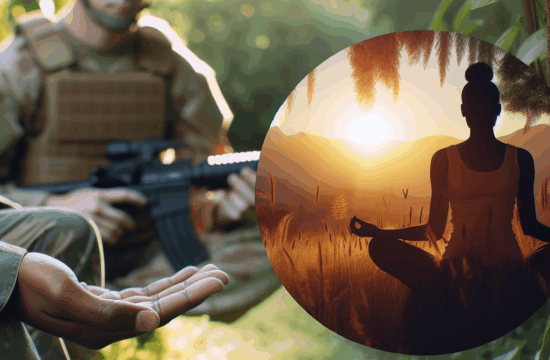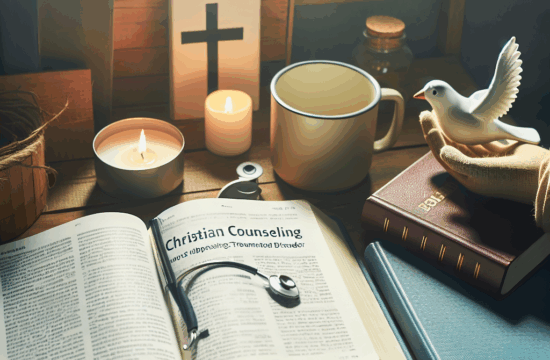==> Thank you for reading this post! Click Here If you are looking for support and Victory over PTSD.
Understanding the Struggles of Veterans
The Emotional Toll of Service
As someone who has spent time working with veterans, I can personally attest to the emotional struggles that many of them face after returning from service. The experiences they go through can leave a lasting imprint, often leading to issues like PTSD, anxiety, and depression. It’s vital for us to acknowledge these challenges, as understanding is the key to offering genuine support.
For many veterans, the battle doesn’t end when they return home. The longing for normalcy can be overshadowed by flashbacks or anxiety-filled moments. I’ve seen how these feelings can disappear all at once with the right support, but it’s too common for them to fester, making day-to-day life feel overwhelming.
With that said, having open conversations about these emotional struggles fosters a sense of community and support. It’s more than just acknowledging their service; it’s about being there for them, helping them navigate their feelings and find their way back to a fulfilling life.
The Physical Impact of Military Service
Let me tell you, the physical toll on veterans cannot be underestimated. Many of them carry the weight of injuries that may not always be visible. From chronic pain to mobility issues, these physical limitations can create a sense of isolation or frustration. I’ve noticed how a lack of understanding from those around them only exacerbates these feelings.
Healing physically is a journey, and sometimes it requires more than just traditional treatment. Alternative therapies, like yoga or massage, can work wonders. I think it’s essential to look at the whole person – mind, body, and spirit – when tackling their health issues. Getting involved in programs that address physical health is something we should all support.
Moreover, the healing process can be incredibly empowering when veterans reclaim their physical abilities. I have seen individuals grow stronger, not only in their bodies but in their confidence, making strides towards a healthier future.
Finding Purpose After Service
One of the most critical aspects of healing is helping veterans find purpose after their service. The transition to civilian life can be disorienting. Many veterans spend their entire adult lives serving, and then they’re left with a void upon return. I’ve interacted with veterans who felt lost without the structure and camaraderie of military life, making it essential for us to be proactive in offering them guidance and opportunities.
Seeking out volunteer opportunities, engaging in community projects, or even exploring education can rekindle a sense of purpose and belonging. From my experience, this shift not only aids in healing but also brings new friendships and fosters a community of support that veterans so desperately need.
Importantly, mentorship programs can be invaluable. Pairing veterans with those who have successfully navigated similar transitions can provide reassurance and a roadmap for a fulfilling civilian life. I’ve seen firsthand how mentorship creates bonds that can last a lifetime.
The Importance of Holistic Healing
Integrating Mind, Body, and Spirit
When it comes to healing, I truly believe in a holistic approach. Veterans often need support that goes beyond just physical or emotional care; they require a method that integrates mind, body, and spirit. This philosophy has guided many of the programs I’ve been part of, as it creates a comprehensive support system.
Consider this: yoga for veterans, for instance, not only promotes physical strength but also enhances mental clarity through mindfulness. It’s incredible to see the transformation in veterans when they connect with their inner selves through such practices. I often hear testimonials about how yoga has helped veterans cope with anxiety and even build camaraderie with others in sessions.
Moreover, engaging in artistic pursuits can also provide therapeutic benefits. Whether it’s painting, music, or writing, expressing oneself artistically can be a powerful way for veterans to process their experiences and emotions. These activities create a safe space for emotions to flow, aiding in their healing journey.
Get Support and Help with Recovery! Visit us for more Information and Support
Creating Supportive Networks
Community support is paramount. As someone who has seen the magic that supportive networks can create, I’m a firm believer in fostering environments that encourage veterans to lean on each other. Local support groups, buddy systems, or even social gatherings can create bonds that serve as a cushion during tough times.
One of my favorite initiatives is to organize community events where veterans can share their stories. These gatherings don’t just provide an opportunity to express feelings; they reinforce the idea that they’re not alone in their journey. It’s heartwarming to witness the instant connections that form when veterans realize they share similar experiences.
Online forums and virtual meetups have also gained popularity, especially for those who can’t commit to in-person gatherings. It’s amazing how technology can bridge gaps, providing a lifeline for veterans to connect with others and find solace no matter where they are.
Resources for Continuous Support
It’s crucial for veterans to know about the resources available to them. Whether it’s through government programs or local non-profits, having access to ongoing support ensures they aren’t left to navigate their healing alone. In my experience, awareness of these services can open doors to therapy, counseling, and even job placement help.
Veteran service organizations are fantastic starting points. They provide both information and direct assistance to veterans seeking help. It’s important for us to direct veterans toward these organizations as they offer critical support tailored specifically for their needs.
Finally, continuous education about mental health and wellness should be available. Workshops, seminars, and training can equip veterans – and support networks – with essential tools and strategies to maintain their emotional and physical health. Just knowing that there’s always something new to learn can be incredibly uplifting and motivating.
FAQ
1. What are some common emotional struggles veterans face?
Many veterans experience PTSD, anxiety, and depression due to their service. The emotional toll can be immense, leading to challenges in adjusting to civilian life.
2. Why is holistic healing important for veterans?
Holistic healing addresses the complete individual – mind, body, and spirit. This comprehensive approach can enhance healing by offering support that goes beyond just physical or emotional health.
3. How can veterans find purpose after service?
Veterans can find purpose through volunteer work, education, or mentorship programs. Engaging in community projects helps rebuild a sense of belonging.
4. What resources are available for veterans needing support?
There are various resources including veteran service organizations, support groups, and mental health services. It’s crucial for veterans to be aware of what’s out there to help them.
5. How can community support benefit veterans?
Community support creates connections and a sense of belonging for veterans. Having a support network helps them feel understood and less isolated in their healing journey.













